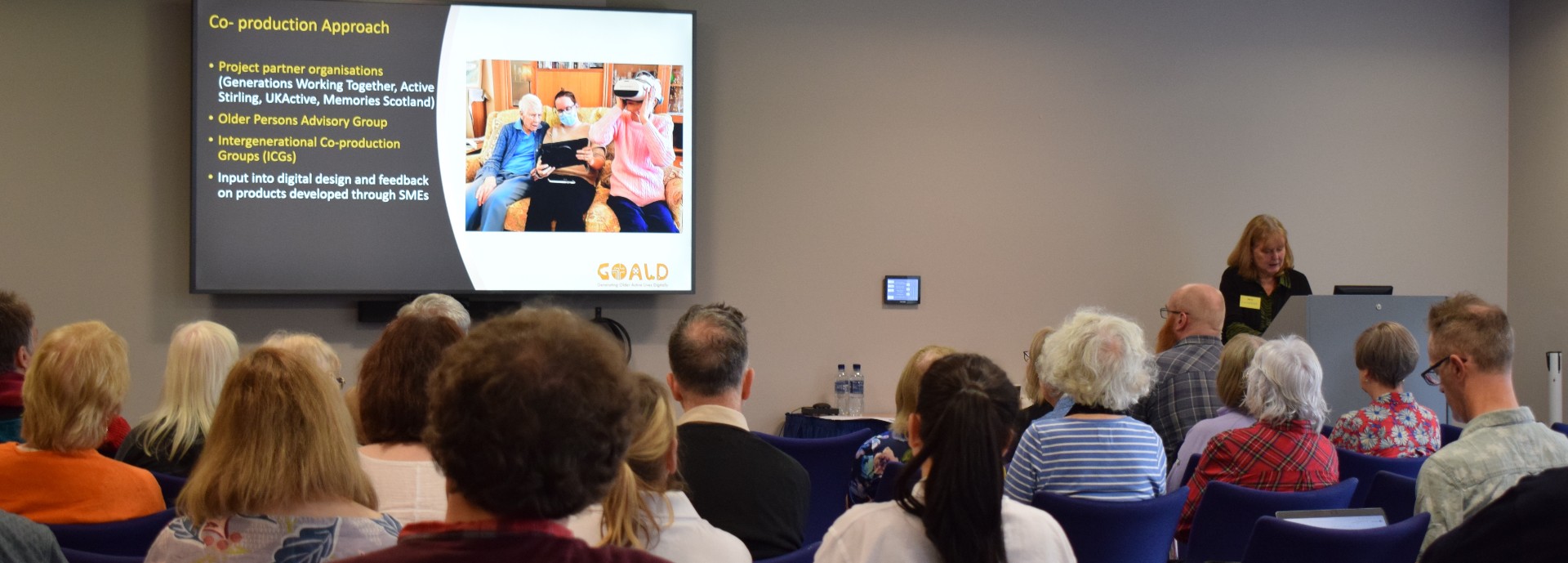Exercise bingo, a virtual reality (VR) walking game and an online music and movement programme are hoping to boost the physical activity, health, and wellbeing of older people after receiving funding from the University of Stirling.
Five small and medium sized enterprises (SMEs), charities and organisations have received £5,000 each to develop new technologies, product ideas and design concepts to engage older people in activity.
The funding has been awarded as part of the research project GOALD – Generating Older Active Lives Digitally, led by Stirling health and ageing experts in partnership with the University of Plymouth and local community groups including Active Stirling and Memories Scotland. It aims to contribute to the challenge mission of ensuring people can enjoy at least five extra healthy, independent, years of life by 2035.
The new interactive tech - which also includes a VR immersive experience which can transport participants to different places to encourage relaxation and a new ‘Mature Movers’ platform to make group rehabilitative exercise classes more accessible – have been developed with the input of older people.
Dr Colin Shore, of the University of Stirling’s Faculty of Health Sciences and Sport and Researcher on the GOALD project, said: “We worked with care home residents, charities, and other third-sector organisations to test and gain feedback on various technologies to help shape what older people needed to help them become more active. We asked them what they liked and didn’t like, what could be improved and took note of any barriers that prevented them from interacting positively with the technology.
“Technology is a valuable tool to maintain health and improve quality of life and can offer a quick and easy way for people to meaningfully connect online. However, poor connectivity and access to Wi-Fi, lack of confidence and technological know-how, plus not having access to things like smart phones and tablets due to economic disadvantages, can prevent older people being at risk from digital exclusion.”
Following a Dragon’s Den style process, five organisations were chosen to receive the funding and have started developing their products:
- Triangular Pixels – A VR physical activity game, promoting natural movement like walking allowing users to explore different environments.
- Mature Movers – An online platform making finding and accesses local in-person and online live, group rehab exercise classes for those over 60.
- Age Scotland – Body Boosting Bingo, a group game which randomly shuffles 30 strength and balance exercises.
- Motus VR Ltd (previously ROVR) – Relieve, a VR experience enabling shared social experiences.
- danceSing – a web-based platform hosting dancing and singing keep fit sessions.
Professor of Behavioural Medicine, Anna Whittaker, a lead on the GOALD project, said: “What’s important about these products is they encourage movement that is fun and enjoyable. The activities don’t feel as if they are formal exercise – they encourage simple, everyday movements that provide good physical and mental challenges that should help towards older people’s independence in daily activities.
“We received some insightful feedback from care home residents that they wanted computer games with avatars that looked like them and relatable instructors that better represented people in older age.”
The new technologies will be designed and trialled over the next five months.
Learn more about the GOALD project and how it's benefitting participants.

